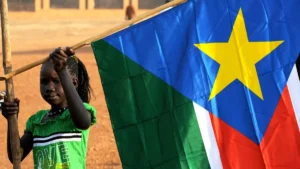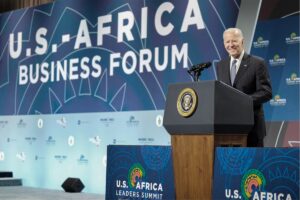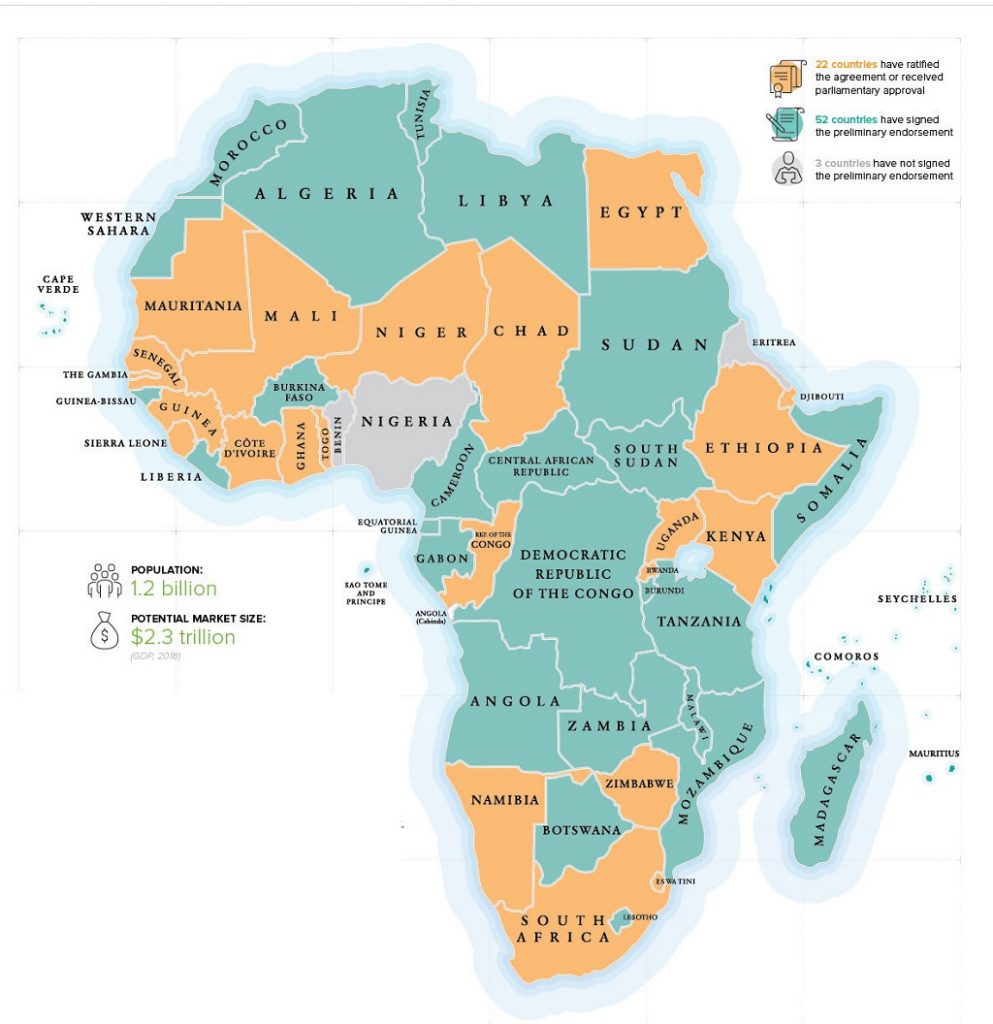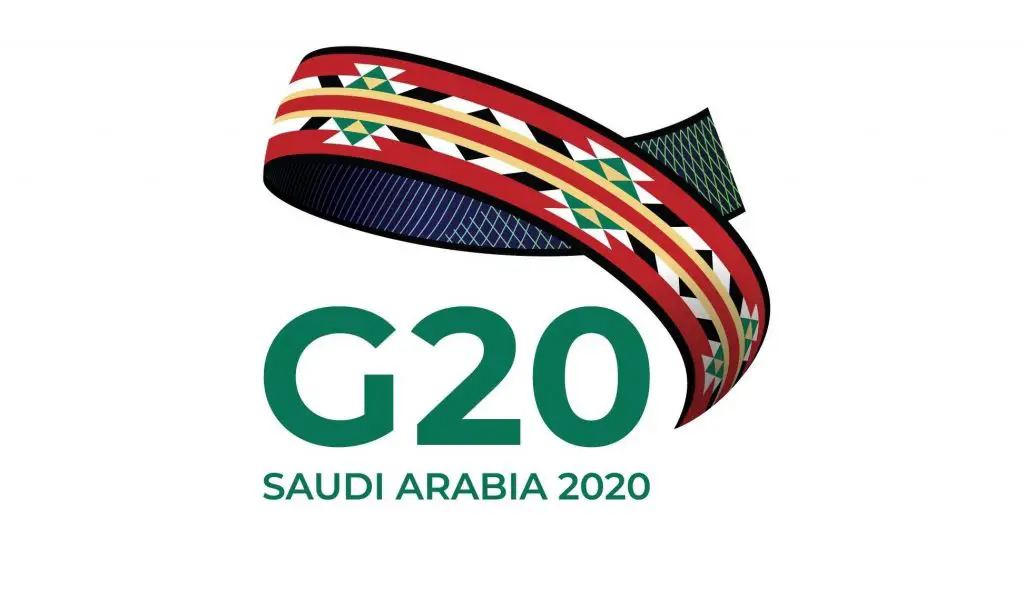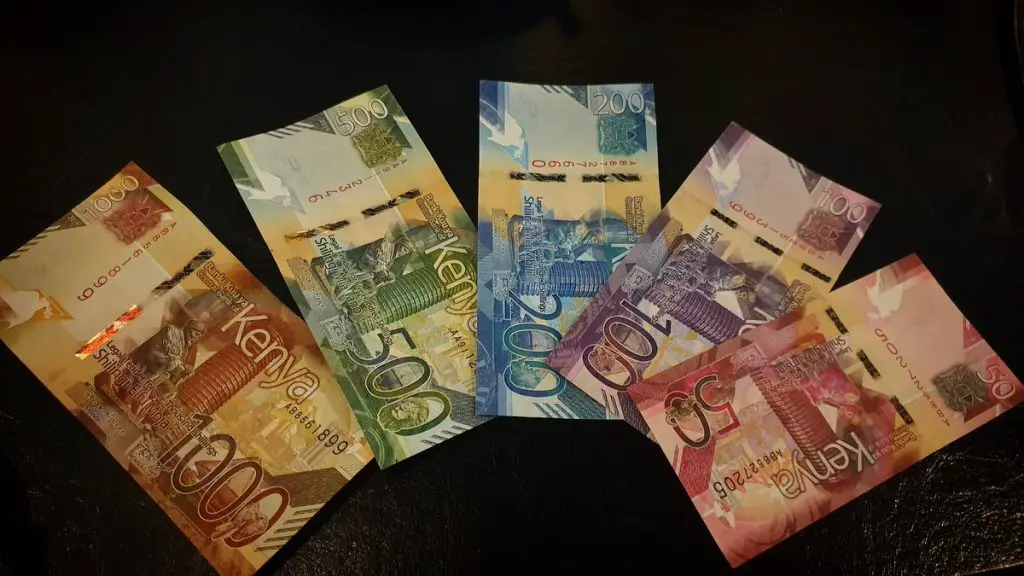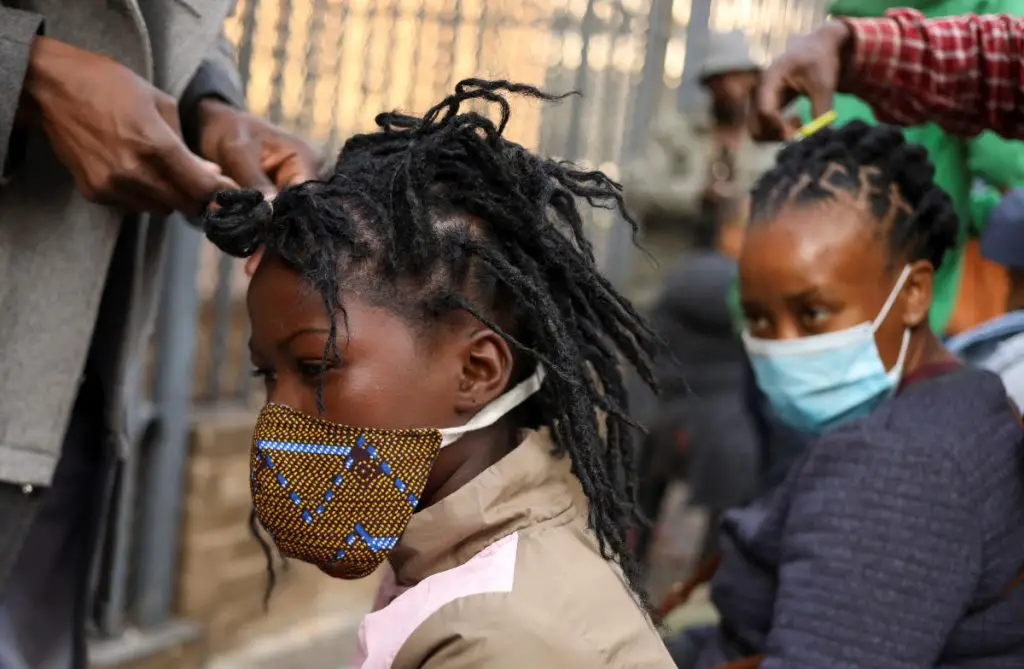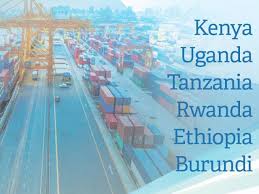- History beckons as push for Kenya’s Ruto to address US Congress gathers pace
- IMF’s Sub-Saharan Africa economic forecast shows 1.2 percent GDP growth
- The US Congress proposes extending Agoa to 2041, covering all African countries
- Millions at risk of famine as fuel tax row halts UN aid operations in South Sudan
- Empowering the Future: Humanity Protocol’s Dream Play Initiative
- TikTok Community Guidelines update aims to curb hate speech and misinformation
- Rwanda sees 39% surge in bank borrowers as Sacco and MFI loan uptake declines
- Kenya Ports Authority wins dispute case over cargo release
Browsing: IMF
AfCFTA must be an engine for growth as much as an engine for inclusion.…
Africa and China have had an interesting relationship in the last decade with the Asian giant enthusing that the relationship with the world’s second-largest continent is based on mutual partnership and understanding. …
Just before the onset of Covid-19, banks in many parts of Africa were pushing for adoption of online-based financial solutions but with little pressure. Then came Covid-19 and changed how people access their finances; this has created an urgency of sorts to promote financial inclusion.
Some governments are currently providing incentives to pay for goods or services digitally, through mobile money or e-wallets. For example, Uganda has cut mobile money transfer fees; Egypt, Liberia, and Myanmar have increased transaction size limits, while authorities in Bangladesh, Cameroon, the Democratic Republic of Congo, Ghana, Kenya, Mozambique, Pakistan, Rwanda, Senegal, and Zambia have taken both sets of measures (cutting mobile transfer fees and raising transaction size limits) in response to the pandemic.
When Kenya reported its first case of Covid-19, the Central Bank of Kenya called a consultative meeting with Bank CEOs and immediately passed ways of ensuring that the country adopts use …
The Executive Board of the International Monetary Fund (IMF) approved the disbursement of $171.9 million to the Republic of Madagascar under the Rapid Credit Facility (RCF).
This is the second emergency disbursement to Madagascar after the IMF approved $ 165.99 million on April 3, 2020, bringing the total IMF COVID-19 support to Madagascar to $337.9 million. This fund will help finance the country’s urgent balance of payments and fiscal needs.
Since the approval of the first Rapid Credit Facility, the economic outlook of Madagascar has worsened due to a further deterioration of the global environment and a deepening of the impact of the COVID-19 pandemic, with the 2020 GDP now projected to contract by one per cent.
The financing gap is now estimated at about $580 million due to an increase in urgent balance of payments needs arising from the pandemic. Revenue losses and redirecting budget resources to address critical …
Most African currencies have depreciated against the US dollar except for the Malawian Kwacha.…
The African continent has experienced a bitter reaction from the coronavirus pandemic, whereby as of May 13 almost every nation in the region battled the virus, while—other nations had cases less than 1000, the continent with some of the fast-growing economies could contract by 1.5 per cent and lose $200 b in income, according to International Monetary Fund (IMF) projections.
World Economic Forum brings an interesting perspective to the fold, as it pictures the regional economies in a deterioration hotbed as a result of de-globalization, and underlying factors such as operation shift to digital and debt burdens.
Hence—African Development Bank (AfDB) one of Africa’s vibrant financier has risen and displayed a rather crucial analysis pertaining the fate of the regional economy, the report was released on Tuesday 6 July 2020.
As the rest of the world strives to salvage and bounce back to normalcy, still—there are vital aspects at play …
The executive board of the International Monetary Fund (IMF) approved a $14.3 grant under its Catastrophe Containment and Relief Trust (CCRT) yesterday to assist Tanzania in servicing its debt to October 13, 2020.
According to the lender statement, further allocation of additional relief covering the period of October 14, 2020, to April 13, 2022, will be granted subject to the availability of resources in the CCRT, potentially bringing total relief on debt service to the equivalent of about $25.7 million.
Tanzania has been one of many countries in Africa where it’s the fast-growing economy was shaken by the coronavirus (COVID-19) pandemic.
As crucial sectors including tourism, travel and exports were hurt—the IMF equivocally noted that the debt service relief will aid “alleviating Tanzania’s balance of payment needs stemming from the COVID-19 pandemic,”
Tanzania’s closest lender also took the liberty to address various issues including debt service anticipated impacts …
The effects of Covid-19 have continued being felt in the East African region despite governments developing various interventions to counter them. Interventions have included the provision of healthcare remedies as well as stimulus plans to bail out communities who have been ravaged by the pandemic. The highlight of the inter-East African relations has been a diplomatic tiff between Kenya and Tanzania that had threatened the livelihoods of the region who depend on the two strongest economies.
The markets in the region have remained slow with the economies expected to get a hit for months to come. Various entities including the World Bank have revised their projections of the growth of the region’s economy. The triple effects of Covid-19, floods and locusts have made the economies of this region suffer greatly. Kenya has also received a negative rating by Moody based on her rising debt.
In this edition, we highlight how …
The globe is at a stand-still position and Africa is hurting and expected to also sustain serious repercussions from the novel coronavirus (COVID-19) pandemic, which has already claimed nearly 2,000 lives, infected over 60,000 people and around 21,000 managed to recover According to the latest data by the John Hopkins University and Africa Center for Disease Control on COVID-19 in Africa.
The pandemic has brought rather crucial ideas from South Africa’s President and African Union chairperson Cyril Ramaphosa on Africa requesting a two-year debt standstill to provide governments with the fiscal space to fight the coronavirus pandemic.
As the world strives to attain a balance between staying safe and breathing life back to the economy, Africa is taking the entire perspective of the pandemic on its axis, while other nations move around several measures, some African nations have managed to somewhat contain the virus to a certain extent.
The
…The East African coronavirus (COVID-19) battle has been fortified with $1.23 billion from the International Monetary Fund (IMF).
Both Kenya and Uganda have so far confirmed more than 600 cases of the virus.
COVID-19 Funding in Kenya
According to the IMF statement, on Wednesday the IMF Executive Board approved the disbursement of SDR542.8 million (100 per cent of quota, about US$739 million) to be drawn under the Rapid Credit Facility (RCF).
“This will help to meet Kenya’s urgent balance of payments need stemming from the outbreak of the COVID-19 pandemic,” The statement read in part.
The impact of COVID-19 on the Kenyan economy will be severe. It will act through both global and domestic channels, and downside risks remain large.
The Kenyan authorities have taken decisive action to respond to the pandemic’s health and economic impacts, the sudden shock has left Kenya with significant fiscal and external financing needs. Authorities …

